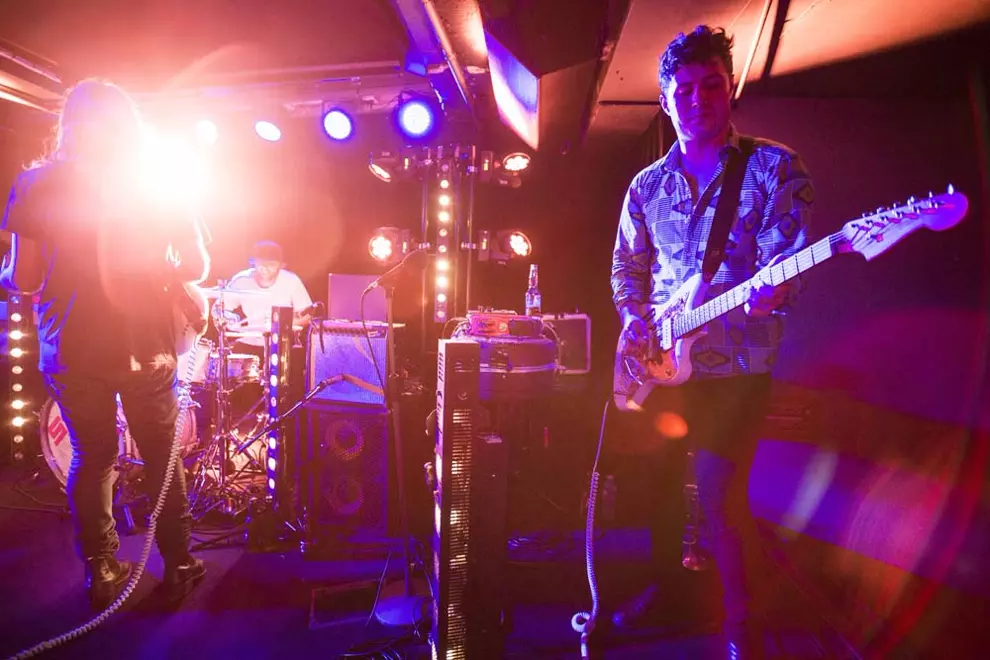Turn the amps up. Canberra’s live music scene and night-time economy are getting a boost after the ACT Government unveiled some changes last Friday (August 16).
There’s a greater noise allowance for music venues in the City Centre Entertainment Precinct (CCEP), from 60 to 75 decibels.
It would be in place from Sunday to Wednesday between 10 am to 11 pm and on Thursdays to Saturdays from 10 am to 1 am.
Free loading zone permits will be available for musicians and road crews to access loading zones for up to 30 minutes to load and unload their gear as part of a 12-month trial.
Musicians will soon be able to apply for a permit via the Access Canberra website.
“Fun isn't silent,” said ACT Arts and Culture Minister Tara Cheyne. “It provides certainty for musicians, artists, and performers to showcase their talents and build their reputation and audience.”
Three years ago, there were celebrated incidents where The RUC at Turner had to stop an acoustic jazz duo from playing outdoors on a Sunday afternoon, and Magoo’s on the Kingston Foreshore revealed it was struggling to remain a supporter of live music with a 50-decibel limit.
“Your vacuum cleaner is louder than that,” lamented owner Rod ‘Magoo’ Melmoth. “People screaming for an encore are louder than the music.”
In Line
Don't miss a beat with our FREE daily newsletter
The new volume level would put the CCEP in line with other entertainment precincts, such as Brisbane's Fortitude Valley, Sydney Park Junction, and Adelaide’s Elder Park.
The changes come as the Government plans to set up entertainment precincts in other parts of the city where entertainment, leisure, and retail activity would be predominant. These precincts would cover live music, clubs, bars, restaurants, cultural shows, exhibitions, and events.
For Canberra's nightlife, July saw the introduction of a reduction in liquor licence fees for businesses that hold live music and arts events in their venue, the removal of regulatory barriers to generate more activity from small businesses, more flexibility across trading hours, and celebration of special events such as the Olympics and flower and garden Floriade.
Dave Caffrey, President of MusicACT, who began pushing for such reforms 15 years ago, called last Friday’s announcement “a turning point in the cultural development of Canberra” and said the ACT government had been listening to the industry.
“Our young city is growing up. No longer is the city reserved for daytime shopping and meetings: soon, the heart of our city will beat with music,” he commented.
“These policies will take years to be fully realised by industry and audiences, and now is an excellent time for this to happen. COVID and this economic winter has been hard on our industry, but today is a welcome sign of hope.”
Jonathan Murphy, who began running the Squeaky Clean club in Verity Lane last year, told ABC Radio that it meant venues no longer had to exclude certain kinds of acts from being booked late at night when the club opens until 2 am.
"It makes our city lively and bustling and an exciting place to live," he said.
Chris Gatfield, General Manager of the Australian Hotels Association ACT, echoed the Minister’s sentiment when he summed up: “The reality is that fun isn’t silent.”
He expanded: “These reforms recognise that if people move next door to a pub or a bar in a vibrant night-time precinct, they should expect a certain level of sound that comes with that.
“As our night-time economy continues to grow, we want Canberrans and tourists to get out after dark and enjoy our award-winning pubs, bars, and restaurants. (We) look forward to enjoying more live music in venues more often”.
The ACT Government said the reform package was designed to support and grow live music venues, bars, restaurants and other non-licensed entertainment venues in the CCEP.
It was also meant to boost artists and industry workers in the night-time sector, provide more diversity for tourists, and ensure the mental well-being of the community while future-proofing business growth.
Benefit
Minister Cheyne added that residents and tourists will benefit from a city that is safe, accessible and rich with a diversity of experiences.
“The night-time economy reforms that we are delivering will make a tangible difference to businesses in the ACT, many of which are small and medium enterprises.
“They will have a positive impact on the community, particularly those Canberrans who want lively and diverse night-time experiences that can be enjoyed in a safe and welcoming environment.”
This would add to the businesses and jobs in the ACT's night-time economy. In 2021/22, it was estimated to have 502 entertainment-specific establishments, employ 30,000, and generate $3.8 billion in sales.
The CCEP is bound by Cooyong and Akuna Streets, along with Northbourne Avenue, and includes the Melbourne Building and Constitution Place establishments.
















